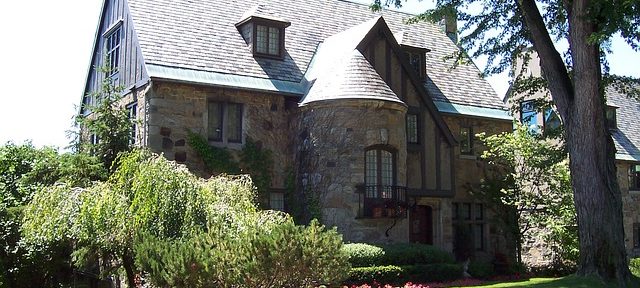The new October 2016 Federal Government Principal Residence Exemption (PRE) rules are causing many Canadians to review and revise existing Wills and Estate Planning strategies according to STEP (The Society of Trust and Estate Planners).
To track the capital gains that foreign buyers have been avoiding on the purchase and sale of Canadian residential real estate, the new federal rules have created complications for many Canadians who use Trusts and Qualified Disability Trusts (QDTs) as part of their Legacy planning strategies. (The following points are just some highlights and specific tax and legal advice will be needed for each individual situation.)
Under the new rules, notes Ian Lebane, a tax and estate specialist with TD Wealth Private Client Services, only three types of trusts are eligible to claim the PRE:
- Life interest trusts, which generally are trusts that would benefit from a rollover.
- Qualified disability trusts.
- A trust created for a minor child of the settlor (the person contributing assets or money to the trust, generally a parent).
In addition, the trust will only be eligible if the beneficiary is:
- A resident in Canada during the year.
- If the trust acquires property after October 2, 2016, “the terms of the trust must provide the beneficiary with a right to the use and enjoyment of the housing unit as a residence throughout the period in the year in which the trust owns the property.”
Regarding the trust terms, most existing trusts are not currently drafted that way, says Lebane, but for “any wills where the testator is still alive, they need to have that language.” Furthermore, each type of trust has its own beneficiary requirements.
Using one common planning example, where significant problem arise, involves life interest spousal trusts, commonly used in second marriage scenarios. It is only possible to claim the PRE “if the right to occupy is unconditional for the spouse’s lifetime.” Yet many such trusts place conditions on the spouse’s living in the home, such as the right to residency until they remarry or specifying that the spouse must pay for utilities and upkeep.
Even if the right is unconditional, the trust will be offside if it directs sale proceeds of the property to any other beneficiaries while the spouse is still alive.
People can only benefit from one QDT at a time, which can restrict planning. According to Lebane, It is common for one QDT to hold the principal residence and another one to hold the investments, which may force you to choose between using one or the other QDT for maximum tax planning benefits.
Lebane also recommends to use the preferred beneficiary election (PBE) for the investment trust which would allow the trust’s income to be taxed in the disability beneficiary’s hands, while leaving the home to qualify for the PRE.
Yet, in all cases, the beneficiary of a QDT must qualify for the Disability Tax Credit (DTC). If the intended beneficiary has not yet qualified for the DTC, yet, then you should initiate the process to qualify immediately, says Lebane.
Finally, in the case of minor child trusts, the new PRE rules are problematic. Current trusts often provide for the use of the residence if they are under age 18, but under the new rules, once a child turns 18 and leaves home to attend post-secondary schooling, the trust now becomes ineligible for the PRE, says Lebane. A valuable asset such as the family home can be a big responsibility for an adult child to own outright and may thwart the planning intentions of the deceased parents.
Another wrinkle, says Lebane, is the minor child trust is ineligible for the PRE if one parent is still alive, “regardless of the relationship with the child. The options for trusts for minor children are now quite narrow”, he says.
It is important for all Canadians to review their current Wills and Estate plans to ensure that the proper wording is incorporated within those documents to avoid taxes being charged on, what used to be totally tax exempt, principal residence.
Article provided by Iftikhar Mahmood. CFP.
He can be reached at [email protected].
Certified Financial Planner, createwealth planning; Focused on the growth – and preservation – of your wealth
Please note: this article is not a substitute for legal advice. This article only provides general information which you may find helpful. You may wish to consult with a qualified professional financial or legal advisor, as appropriate.







